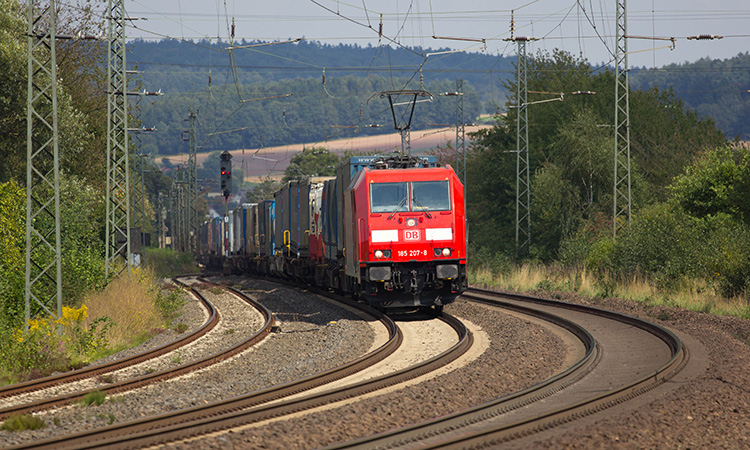EC approves €1.1 billion German scheme to support operators using electric traction
Posted: 1 March 2023 | Elliot Robinson (Editorial Assistant - Global Railway Review) | No comments yet
The European Commission has approved a €1.1 billion German scheme to compensate rail transport operators using electric traction.


The European Commission has approved, under EU State aid rules, a €1.1 billion German scheme to compensate rail transport operators using electric traction in the context of the recent spike in electricity prices. The measure will contribute to ensuring that the rail sector remains competitive while preserving the environmental performance of electric rail, in line with the objectives of the Commission’s Sustainable and Smart Mobility Strategy and of the European Green Deal.
Germany notified the European Commission of its intention to introduce a €1.1 billion scheme to support freight and passenger rail transport operators using electric traction. The aim of the scheme is to help rail operators cover part of the additional electricity cost experienced due to the exceptional increases in electricity prices in the context of Russia’s war against Ukraine. In doing so, the scheme aims to support and preserve the modal shift from road to rail transport using electric traction, thus promoting a greener means of transport.
Under the scheme, the aid will take the form of monthly reductions in the freight and passenger rail transport operators’ electricity bills. Electricity suppliers will then be reimbursed by the German state only for the economic support provided to the rail transport operators. The scheme will cover electricity consumed between 1 January 2023 and 31 December 2023.
Related content you will enjoy:
CER publishes first progress report on implementation of its Ticketing Roadmap
A high-speed rail network in the EU is key to future sustainable mobility
The European Commission’s assessment
The Commission assessed the measure under EU State aid rules, in particular Article 93 of the Treaty on the Functioning of the European Union (TFEU) on transport coordination, and the 2008 Guidelines on State aid for railway undertakings. The Commission found that:
- The scheme is beneficial for the environment and mobility, as it supports rail transport using electric traction, which is less polluting than road transport and decreases road congestion
- The measure is necessary and appropriate to achieve the objective pursued, namely to support and preserve the modal shift from road to rail transport using electric traction in a situation of exceptionally high electricity cost
- The scheme is proportionate, i.e. limited to the minimum necessary, as the aid remains below the maximum thresholds set out in the Railway Guidelines
- The aid is limited to reducing the competitive disadvantages faced by rail transport using electric traction compared to road transport. Therefore, the measure will not have undue negative effects on competition and trade in the EU.
On this basis, the Commission approved the German scheme under EU State aid rules.
“This €1.1 billion scheme will enable Germany to support electric traction, which is a more environmental-friendly mode of rail transport compared to diesel-fuelled vehicles,” Margrethe Vestager, Executive Vice-President of European Commission, said. “It will help Germany meet its European Green Deal objectives, while reducing the burden of rising electricity costs for transport operators, to the benefit of passengers and freight customers.”
Global Railway Review Autumn/ Winter Issue 2025
Welcome to 2025’s Autumn/ Winter issue of Global Railway Review!
The dynamism of our sector has never been more apparent, driven by technological leaps, evolving societal demands, and an urgent global imperative for sustainable solutions.
>>> Read the issue in full now! <<<
Related topics
Electric/Hybrid Rolling Stock, Funding & Finance, Regulation & Legislation, Sustainability/Decarbonisation







